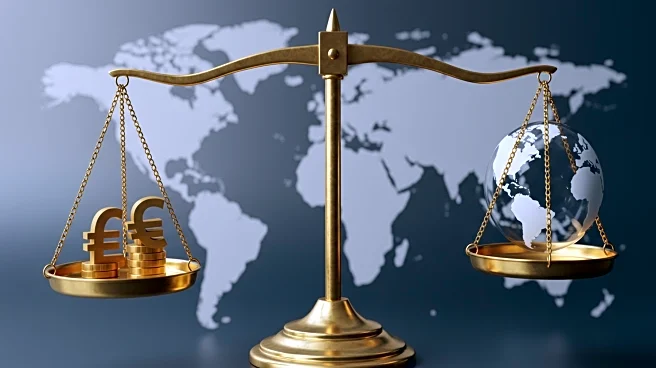What's Happening?
A federal appeals court has ruled in favor of President Trump, allowing him to withhold approximately $2 billion in foreign aid payments. This decision overturns a previous order by District Judge Amir Ali, which had blocked the administration's plans to reduce disbursements from the US Agency for International Development (USAID). The ruling was made by a panel of judges from the US Court of Appeals for the District of Columbia, with Judge Karen Henderson stating that the plaintiffs lacked standing to challenge the funding freeze. The lawsuit was initially filed by two nonprofit organizations, the AIDS Vaccine Advocacy Coalition and Journalism Development Network, following Trump's order to pause foreign aid funding. The court's decision is based on the Impoundment Control Act of 1974, which grants the Government Accountability Office the authority to challenge such presidential orders.
Why It's Important?
The ruling has significant implications for U.S. foreign policy and international relations. By allowing the Trump administration to cut foreign aid, the decision aligns with the 'America First' policy, potentially affecting numerous international aid projects and partnerships. This move could lead to reduced U.S. influence in global humanitarian efforts and impact countries reliant on American aid. Critics argue that the decision undermines congressional authority over budgetary allocations, while supporters claim it enables more responsible spending. The ruling may also set a precedent for future executive actions regarding foreign aid and budgetary control.
What's Next?
The decision may prompt further legal challenges or legislative actions as stakeholders react to the implications of reduced foreign aid. Nonprofit organizations and international partners may seek alternative funding sources or adjust their operations in response to the cuts. Additionally, the ruling could influence upcoming policy debates on foreign aid and executive authority, potentially leading to new legislative measures to address the balance of power between the executive branch and Congress.









